Minister holds meeting with TotalEnergies country manager in Mozambique
MozParks’ Beluluane accounts for 24% of Mozambique’s exports
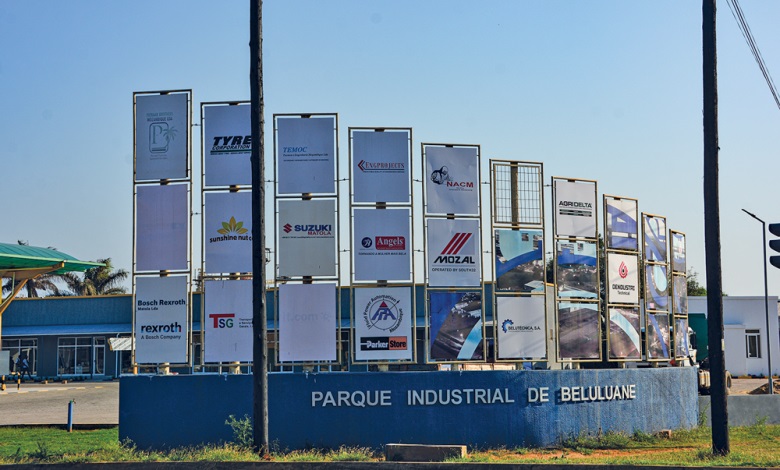
Photo: Domingo
- In 2021, Beluluane Industrial Park exports reached US$1.3 billion
The approximately 50 companies in the Beluluane Industrial Park, currently operating under the MozPaks (MP) umbrella, in Boane district, Maputo province, are responsible for 24 percent of the total national exports, and the generation of close to 7,000 jobs.
Last year alone, this group of companies exported products valued at US$1.3 billion out of a total of US$5.5 billion registered exports from throughout the country.
In Beluluane Industrial Park, the first rule is the processing of raw material, which implies involving all possible units in the manufacture of goods, creating jobs and encouraging exports as a way of strengthening the country’s trade balance.
In the Beluluane industrial complex, which occupies about 300 hectares (ha), a production value chain was created involving close to 50 industrial units, of which 30 operate in an industrial free zone regime, all anchored to the Mozal aluminium smelter project.
It is within the framework of this complementarity that the aluminium ingots made by Mozal are processed by a neighbouring industrial unit for the production of electrical cables. In the same chain are lined-up industries in the metalworking sector dedicated to the production of several industrial supplements linked to the operations of other companies within the Park. The remainder of production goes for export.
In this chain, the company Capital Star Steel also stands out, dedicated to the manufacture of high frequency welded steel pipes for the oil and gas industry. A part of its production is supplied to operators within the Park itself and the surplus is directed to the international market.
In addition to these, there are companies producing sanitary material such as face masks, investment welcomed to respond to the context of the Covid-19 pandemic, in addition to enterprises which produce cement and beauty products, and one of the largest national exporters of cashew nuts – to the United States of America.
In this park there are also factories for the production and processing of plastic material and metal recycling which, like all others of their kind installed there, are obliged to ensure environmental compliance.
With regard to access to energy sources, most of the industries installed in Beluluane, including Mozal, use natural gas supplied by the Matola Gas Company (MGC) for their operation.
In terms of investment origin, the companies represent 17 countries, including Australia, Japan (through the Mitsubishi Corporation) and South Africa, which hold the largest representation.
So far, Beluluane Park has cumulatively created 8,000 jobs, and currently has around 7,000 workers, of whom 3,300 are linked to Darling, the largest employer, followed by Mozal, with around 1,000.
According to the director-general of MozParks, Onório Boane, of the total number of workers employed so far, more than 90 percent are Mozambicans, and the remainder foreigners who occupy specific roles for which they were hired based on qualification criteria, since one of the mottos of the national industrial parks is to promote local employment.
“One of the main challenges of industrial development is the technical capacity to also respond to the appropriate technology, and we are still not at the desired levels in terms of this capacity, which is why we have foreign labour,” he explained.
However, this reality is much more encouraging, since, when Beluluane Park was put into operation, around the year 2000, the majority of the workforce was made up of foreign workers, a scenario which has tended to reverse.
The Park
In terms of organisation, the administration of the Beluluane Industrial Park has the duty to guarantee the existence of infrastructure that makes it possible to establish industries there, namely the construction of internal access roads, water distribution networks, energy, telecommunications, among others with industrial standard.
Around three billion dollars were invested in the design of the Beluluane industrial complex, and revenues are collected in the form of park admission fees, which depend on the size of the infrastructure and type of industry, among other criteria, as well as annual operating fees for the maintenance of infrastructure.
“The Park is an industrial village with its own rules, where access to industries is made by internal roads with a quality which resembles a carpet, safety rules, traffic signs, gates and barriers, one of which divides the normal and the free industrial sector,” Onório Boane explained.
He also said that the establishment of industrial units in the free zone obeys very specific rules of production and consumption based on incentives exempting these companies from customs taxes on imports of raw materials and work equipment.
In addition, during the first 10 years of their establishment in this area, they also enjoy total exemption from Corporate Income Tax (IRPC). Between the eleventh and fifteenth year they start paying 50 percent of the IRPC, which means they pay 16 percent, instead of 32 percent – the national rate.
From the 16th year onwards, the project pays 24 percent, which corresponds to 75 percent of the national IRPC rate – and never the total of 32 percent, which is the normal tax burden.
In addition to these incentives, industries located in the industrial park benefit from a production chain ecosystem that offers the technical advantage of accessing products and services in the production process, sharing experiences and training, and generating a more sustainable circular economy.
As an example, Mozal produces aluminium which is used by another company within the park to manufacture electrical cables, in the same way that the furnaces and gas used for the smelters are supplied by other companies within the same system.
Onório Boane says the Park’s environment also offers better alternatives from the point of view of economies of scale, where companies can share goods and services, especially in logistics, in which, for example, goods can be transported by different companies.
In contrast, industries within the industrial free zone have a duty to add value to the raw material through processing. This measure advocates the guarantee of job creation within the industrial complex.
Furthermore, these industries must produce with the main objective of exporting, and there is a very specific rule on the subject indicating that at least 70 percent of the total production must be for the international market.
“This condition was established to balance the country’s trade balance, and this is important because we have priorities for importing basic products such as medicines and food, so we need to have a balanced trade balance, which has very profound impacts on the economy,” Onório Boane says.
Industries in the normal zone operate at their discretion with regard to the destination of the production and customs, and they enjoy technical advantages and access to the domestic market. There are even companies whose market is restricted to the park, such as those that provide catering, security, gardening and cleaning services.
In fact, the issue of security is another advantage of the industries located in the park, because, within its ecosystem, there are better security alternatives, given that there are close to 20 private security companies there.
Transition and projects
Created by the Government of Mozambique in the form of a public-private partnership in 1999, the Beluluane Industrial Park had the objective of boosting the development of the manufacturing industry and promoting service providers.
Operations began in 2000 with the entry of the aluminium smelting industry, Mozal, serving as the park’s anchor company. Between 2000 and 2021, occupying 300 ha, it experienced its first exploration phase.
Since August 2021, and influenced by its role within the National Industrialization Program (PRONAI), the park has changed its identity to Moz Parks as a way of adjusting to the objectives of modernization, diversification, investment promotion and increased industrial competitiveness.
The change was also intended to face the challenges of greater use of local raw materials to increase industrial production, greater consumption of national products and a reduction in raw exports. It was also motivated by the Government’s new vision regarding the industrialization model of the Beluluane Industrial Park, under which its replication throughout the country was determined.
According to Onório Boane, Moz Parks’ mission is to establish the Beluluane industrial model in all the country’s provinces within the same philosophy of adding value to the anchor projects.
“With Mozal and other mega-projects, we realized that when industries are isolated they do not contribute as much to the socio-economic development of Mozambique as when they are aggregated in a chain,” Onório Boane says.
At this moment, considered as the second phase of development started last year, MozParks started the exploration of the remaining 400 ha within the park with the installation of two new projects, namely the Data Storage Central (CAD) and the Beluluane Thermoelectric Power Plant (CTB).
READ: Beluluane Power Plant: Construction begins next year, confirms MozParks – Watch
‘Domingo’ newspaper has learned that CAD will be developed by the multinational Raxio Group in an investment worth around US$20 million, with a generation capacity of more than 250 workstations in the first phase of its implementation. This will be the first and largest independent data storage centre in Mozambique.
According to Robert Mullins, executive director of the Raxio Group, the project will serve as a key element in the evolution of digital transformation processes in Mozambique, with information storage services for the banking, insurance and telecommunications sectors, among other working with sensitive data.
READ: Raxio Group building first independent data storage centre in Mozambique – Photos
The same 100 ha plot will see the construction of the CTB budgeted at US$2.8 billion that will produce 2,000 MegaWatts (MW) of electricity using natural gas.
Onório Boane explained that Beluluane Thermoelectric Power Plant will use part of the 25 percent of liquefied natural gas (LNG) to be extracted in Area 4 of the Rovuma Basin, within the scope of the application that is enshrined in the Petroleum Law in relation to the use of this resource in the territory for the production of fertilizers, energy, among others.
According to the source, the first phase of the construction of the CTB will consist of the installation of gasification infrastructures in the port of Matola, where ships will be able to discharge their LNG, as well as the installation of a gas pipeline that will deliver gas to the CTB and South Africa. “We want to seize the opportunity that exists in neighbouring South Africa, which is currently experiencing an unprecedented energy crisis,” Onório Boane said.
This project will be implemented by Total Energies, Ressano Garcia Thermal Power Plant (CTRG) and the Government of Mozambique, with MP contributing as the project’s host entity.
In pursuit of improving the electrical network to supply industries at the MozParks level, construction work is currently underway on an 80 MW substation costing €16 million, financed by the German bank KFW and scheduled for completion next December.
Expansion of industrial parks
The expansion of industrial parks across the country began in March this year, with a total area of 215 ha, of which 30 ha are currently being exploited, where the multinational Kenmare is installed, a mining company dedicated to the exploitation of heavy sands for ilmenite, rutile and zircon.
According to Onório Boane, the exploitation of only a small part of the industrial park is due to the absence of a production and service value chain. “The goods consumed by that industry [Kenmare] at the moment are produced outside the province [Nampula],” he explains.
READ: MozParks Topuito and Kenmare Moma Mining shape business for SMEs in Nampula
The current challenge, he says, is to invite investors to position themselves within the Park so that its existence can catapult the socio-economic conditions of the region.
Another challenge taken on by the MozParks’ director is the inclusion of the agro-processing component. “As a country we import most of what we consume, but there is potential. That’s why we want to attract investment in food processing, both to export and serve the domestic market,” he says.
Onório Boane also referred to the challenge related to housing for workers in industrial parks, indicating that in the case of the Beluuane park, the situation is facilitated by the fact that it is located in an urban area, which is not the case at the provincial level, with the need to build homes within the parks.
At the provincial level, there is also the technical challenge related to the construction of roads, electricity and water supply. In fact, MP recently established a memorandum of understanding with the provincial government of Cabo Delgado for the establishment of four industrial parks in the province – in Palma, Montepuez, Balama and Ancuabe.
READ: Cabo Delgado and MozParks sign an Agreement
“Our vision is to build an industrial park in every province by 2030, what we call agro-industrial parks to emphasise agro-processing,” Onório Boane says.
As a way of encouraging industrialization, Onório Boane proposes that the state take specific measures, such as, for example, determining the acquisition of public goods through a preferential model based on local production as a way of to oblige all government ministries to buy products produced locally and encourage investors to set up industries to produce many of the goods that are currently imported.
READ: MozParks: Beluluane Industrial Park changes name with focus on national coverage
By Eduardo Changule


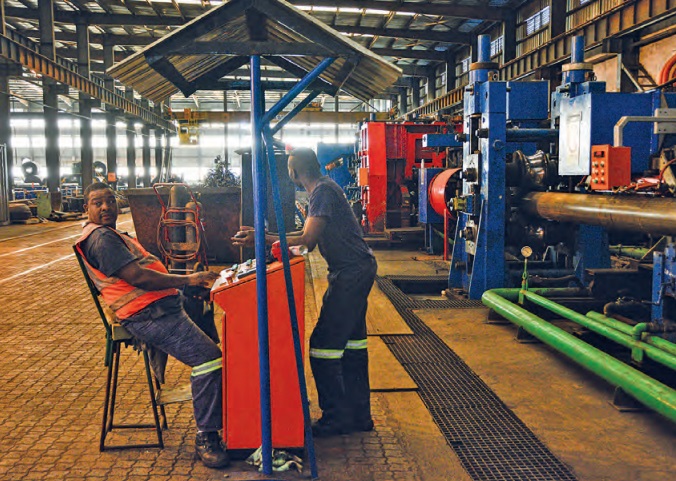

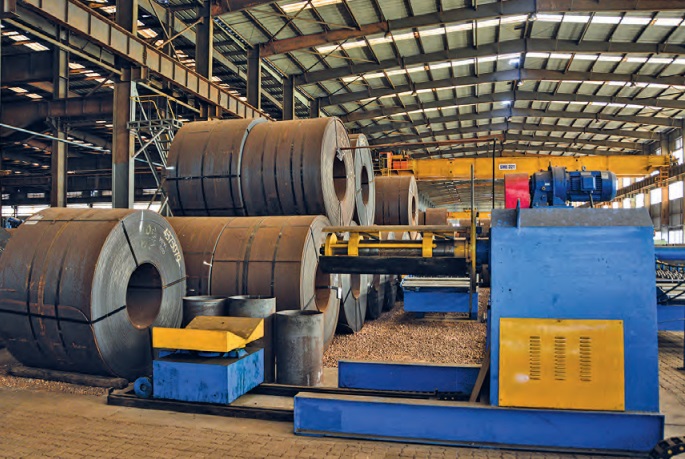
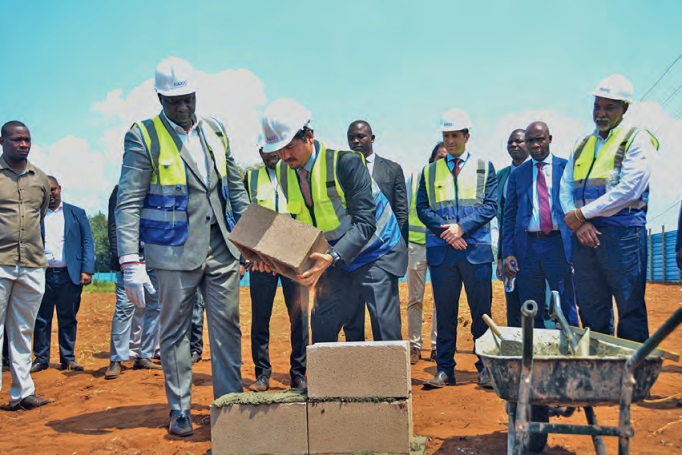
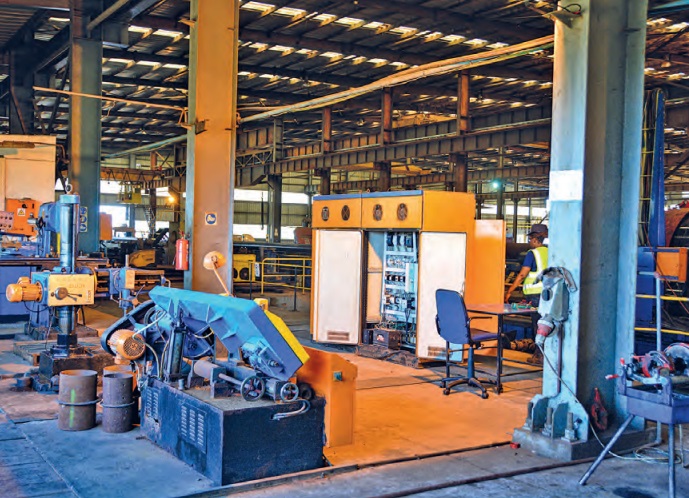
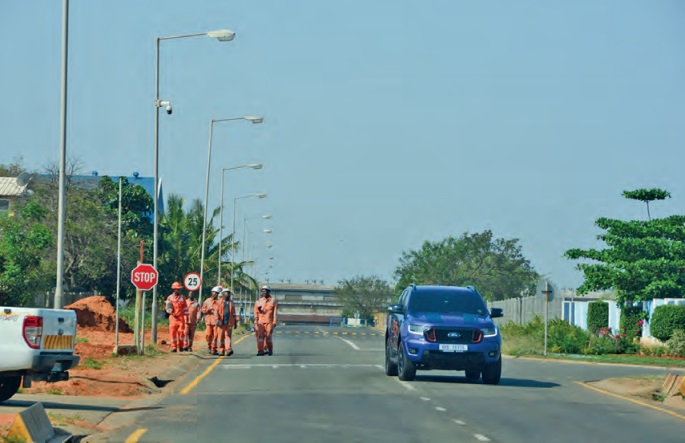

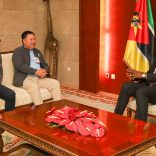


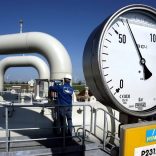
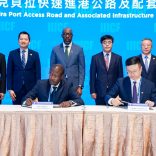




Leave a Reply
Be the First to Comment!
You must be logged in to post a comment.
You must be logged in to post a comment.